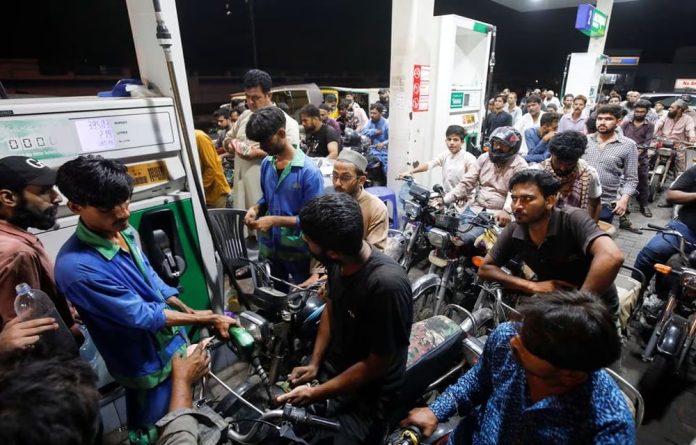DNA
KARACHI: Prices of petroleum products are expected to decline in Pakistan in the next price review on April 30 owing to an international downward trend in oil prices.
The prices of diesel and gasoline have dropped in the global market by $4.3 a barrel and $1.86 a barrel respectively, due to which prices in the domestic markets are expected to fall by Rs7.85 and Rs3.75.
The per barrel price of diesel in the international market is now $104.76 and petrol is $107.16.
Experts in the oil industry told the publication that the prices of petroleum products are trending downward in the worldwide market. The local cost of petroleum goods could also decrease if this effect is passed on locally.
On April 29, 2024, the oil industry will report the final data, taking into account the price patterns over the previous fifteen days.
The experts observe that, despite a brief period of decline, there is instability in global prices, and it is unclear how they will move over the next four to five days.
The government raised the price of petrol by Rs4.53 a litre in the most recent fortnightly review of pricing on April 15, 2024, bringing the petrol to Rs293.94 a litre.
The high-speed diesel’s price climbed to Rs290.38 a litre with an increase of Rs8.14 a litre.
Every 15 days, the government examines and modifies petroleum product prices in response to changes in the price of oil globally and in the value of the local currency.
Since the previous price adjustment, the rupee has somewhat declined against the dollar. On Wednesday, it was trading around Rs278.39.
The expected fuel consumption and supply costs of Pakistan State Oil, the state-owned oil corporation, as well as monthly tax targets, would be taken into consideration by the government when determining the prices of petroleum goods.
About 85% of Pakistan’s oil needs are imported, and the country has been struggling with a balance of payments problem and skyrocketing inflation.
In July 2023, the government signed a $3 billion loan agreement with the International Monetary Fund to travel a path to economic stability.
As part of that agreement, the government committed to a number of harsh measures, such as increasing taxes, increasing energy costs, and permitting a market-based currency rate.
The country’s cost of living and transportation will be impacted by the rising price of petroleum.

















